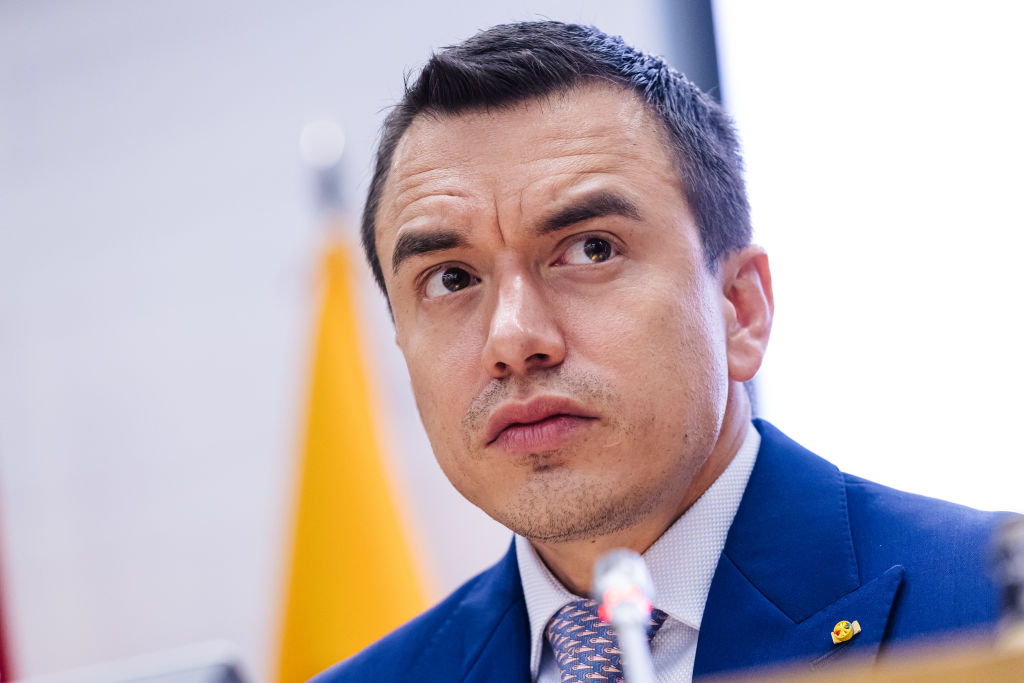
Ecuador’s President Daniel Noboa ordered businesses and government offices to shut down Thursday and Friday amid a crippling lack of electrical power ahead of a key national referendum scheduled for Sunday.
Noboa blamed the unprecedented measure on drought, but also sabotage, without offering evidence. The energy crisis comes on the heels of a security crisis and a fiscal crisis that’s sent it seeking help from the International Monetary Fund.
“We’ve been hammered and hammered and hammered non-stop this week, they’ve tried to screw us with sabotage in the electric sector” to undermine support for his referendum, said Noboa, 36, in Atacames, a beach town hit hard by the surge in crime that’s made Ecuador one of Latin America’s most violent countries.
Read More: Ecuador in Turmoil After ‘Most Wanted’ Criminal Escapes Prison: What to Know
The market-friendly heir of a banana export fortune is asking voters in Sunday’s referendum to approve stronger use of the military as well as the extradition of Ecuadorian citizens to fight crime and to overturn constitutional bans on temporary work and international arbitration.
Drought is affecting other parts of the region in which several nations like Ecuador are highly dependent on hydropower. In Bogota, capital of neighboring Colombia, water is being rationed, and the country has stopped exporting electricity to Ecuador as a measure to avoid blackouts of its own.
Ecuador faces a shortfall in energy supply of 22-to-27 gigawatt hours from this month, the presidency said. Due to the drought, major reservoirs for power plants including Mazar and Paute have almost run dry, while the biggest power plant, Coca-Codo Sinclair, has a water flow 40% below average.
The government however also blamed the problem on former Energy and Mines Minister Andrea Arrobo, replaced by Noboa with the public works minister, Roberto Luque, on Tuesday, and 21 other officials for the crisis. The government has promised to pay half of consumers’ power bills for this month.
The crisis hits Noboa’s credibility after the National Assembly passed a fast-track bill in January dubbed the “no more blackouts law” that included a fund to maintain thermoelectric generating capacity.
“It was too little too late,” said Rene Ortiz, a former energy minister as well as secretary general of the Organization of the Petroleum Exporting Countries.
Under President Rafael Correa, Ecuador borrowed heavily from China to fund a hydroelectric power plant construction spree, promising to use the steep slopes and heavy rains of the Andean foothills to generate clean energy.
“To solve the problem, this is the moment to import as many diesel generators as obtainable duty-free,” Ortiz recommended.
More Must-Reads from TIME
- Cybersecurity Experts Are Sounding the Alarm on DOGE
- Meet the 2025 Women of the Year
- The Harsh Truth About Disability Inclusion
- Why Do More Young Adults Have Cancer?
- Colman Domingo Leads With Radical Love
- How to Get Better at Doing Things Alone
- Michelle Zauner Stares Down the Darkness
Contact us at letters@time.com